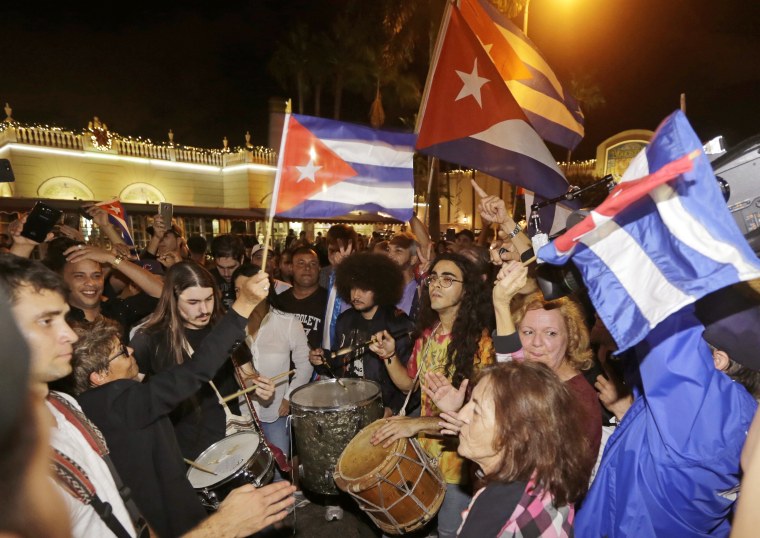MIAMI, Florida - Fidel Castro is dead.
This is a moment I was born waiting for. Minutes after I found out, my heart still pounding in my chest, there was a flash deluge in Miami. One of those rains that comes out of nowhere and almost disappears before the first drops hit the pavement. I’ve always considered these rains a good omen. Cubans often consider them a ‘cleansing’. I love that it rained in Miami. Miami deserved a cleansing. Exiles earned the cosmic nod.
Cuban refugees never thought Miami would be their permanent home. It was a stopover, a waiting room, a place to regroup.
But days became decades and fifty eight years later Miami belongs to us as much as we belong to it.
It’s the place where my parents fell in love and where my sister and I were born. The city where my grandparents rebuilt their lives without ever forgetting the one they left behind. The progressive metropolis in which I thrive freely, thanks to them.
RELATED: Former Cuban Leader Fidel Castro Dead at 90
There is no real way of measuring how brutal the Castro dictatorship has been. How do you keep record of the daily humiliations Cubans have endured? Having to wait in line for hours in the hot sun for a small bag of rice. Having to to say goodbye to your children without knowing if you will ever see them again. Having to take the hand of a predator tourist, willing to pay you a few dollars for your body. How can we possibly measure the degradation of a culture, the breakdown of a civil society, the desperation of a people?
I wondered if the honking horns would bring back my dead relatives, so they can see that we haven't forgotten what they gave up for us.
As I walked through the crowds in front of the famed Miami Cuban restaurant Versailles in the early morning hours of Saturday, I wondered what it would look like to people who don’t know much about Cuba.
What they would think as they watched hipsters, grandpas, recent arrivals and historical exiles bang on drums and pots and pans? Would they think we were barbaric for celebrating the death of a human being? Or would they understand that our chants for ’Libertad! Libertad!’ is more of a prayer than an expectation for thirteen million human beings whose freedom comes with an asterisk.
I looked past the sea of protesters, down Calle Ocho, on the right to Woodlawn Cemetery. It’s where my grandparents are buried; where my father’s remains rest. I wondered if the honking cars and beating drums would bring them back if only for a moment, so that they could see that everything does indeed come to an end, that they can rest in peace, that we haven’t forgotten what they gave up for us.
On our way home, my sister commented that ultimately Fidel Castro never paid the price for what he did in this lifetime. I disagreed. “Miami is proof of his failure.’ Driving down the rain kissed roads in the middle of the night, I felt a lightness I have never felt in my life. Fidel Castro is dead. And for the first time in my entire life, I feel like I can breathe.
